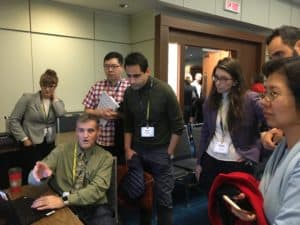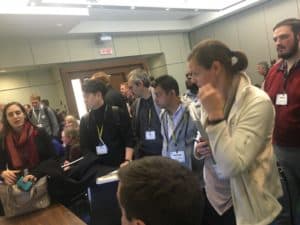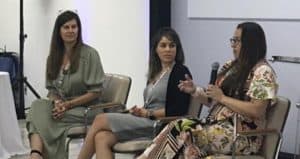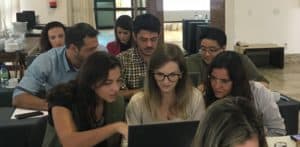New MOU Launches FDA-NIEHS-HESI Botanical Safety Consortium
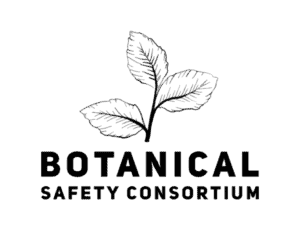
The U.S. Food and Drug Administration (FDA) announced that the Botanical Safety Consortium (BSC) has formally been convened as a result of a Memorandum of Understanding (MOU) that was recently signed between the FDA, the National Institutes of Health’s National Institute of Environmental Health Sciences (NIEHS), and HESI establishing the framework for the BSC.
The BSC was originally announced in the FDA’s February 2019 statement on the agency’s new efforts to strengthen regulation of dietary supplements through modernization and reform. The Consortium’s mission is to provide a forum for scientists from government, academia, consumer health groups, industry, and nonprofit organizations to work collaboratively to generate a sound scientific basis for integrating existing safety data and the latest toxicology tools to evaluate botanical safety in dietary supplements. With the execution of the MOU, specific guidelines for membership and participation in the BSC will be established by early 2020.
HESI will serve as the convener and facilitator for the BSC. For additional information about the Botanical Safety Consortium, including how to join, contact HESI at botanicalsafety@hesiglobal.org or visit www.botanicalsafetyconsortium.org.
HESI-Supported Interactive Session at SETAC a Huge Success!
It was standing-room-only at the “Publicly Accessible Data Analytic Tools for Environmental Toxicology, Chemistry, and Risk Assessment” session at the SETAC North America Annual Meeting in Toronto, Canada. The interactive session allowed for 12 different tools to be highlighted in a brief five-minute overview, followed by a one-hour “Genius Bar” setup where participants could see live demos of the tools and try them out. The session was organized by Carlie LaLone (US EPA), Niladri Basu (McGill University), and Michelle Embry (HESI), and the monitors were provided via support from HESI. There are plans to repeat this popular session format at future SETAC meetings, so please contact Michelle Embry (membry@hesiglobal.org) if you have a tool you would be interested in sharing!
HESI science was also represented at the meeting via posters and presentations from the Animal Alternatives in Environmental Risk Assessment Committee, the Bioaccumulation Committee, the RISK21 Committee, and the UVCB Committee throughout the week.
RISK21 Workshop in Brazil:
A Practical Framework for Risk Assessment in the 21st Century
A RISK21 outreach workshop was held in Brasilia, Brazil on 24 October 2019 and attended by over 20 regulators from ANVISA, IBAMA, and the Brazilian Ministry of Health. The goals of the workshop were to present the RISK21 Framework and engage in collaborative, hands-on illustrative case studies. The newly-developed Risk Assessment Formulation Tool (RAFT), a simple Excel-based tool that helps the user develop a problem formulation statement and conceptual model, was highlighted and is now available at risk21.org under the “Problem Formulation” link. In addition, an ecological risk assessment case study was developed and used in the workshop for the first time. Michelle Embry (HESI) and Doug Wolf (Syngenta) conducted the workshop, which was organized by RISK21 Scientific Advisory Board Members Juliana Machado Braz and Camila Queiroz Moreira from ANVISA.
A RISK21 workshop for industry partners was held in Sao Paulo on 25 October 2019 that followed the same format and involved 20 participants.
RISK21 was also highlighted at the XV TIAFT Brazilian Society of Toxicology (CBTox) Meeting in Aguas de Lindoia, Brazil. A workshop session on “Improving Toxicity Testing and Risk Assessment with RISK21” was chaired by Dr. João Lauro Viana de Camargo (São Paulo State University), where Michelle Embry (HESI) presented an overview of RISK21.
Environmental Epidemiology
Focus Group in Atlanta, Georgia

The HESI Environmental Epidemiology Committee will hold a focus group in Atlanta, Georgia on 6 December 2019. This meeting will engage government regulators, academic researchers, and industry scientists in a dialogue on the use of epidemiology and exposure assessment. The goal of this meeting is to identify incentives and barriers to conducting epidemiology for risk assessment, and develop areas of consensus and paths forward to fully utilizing and leveraging environmental epidemiology for public health decision making. For more information, please contact Sandrine Deglin (sdeglin@hesiglobal.org).
Emerging Issues Committee
Call for Proposals – Now Open!
![]()
HESI is seeking your suggestions for new scientific projects (human or environmental health) for consideration as an emerging issue in 2020. Proposals will be reviewed in early 2020, and one or more will be selected to form a new scientific collaborative program within HESI. Although this is not a grant, the selected program will receive support from HESI for scientific program design, coordination, and staffing.
Learn more about the HESI Emerging Issues Process on our website or download the proposal form here. The deadline to submit proposals is 31 January 2020.
You can also submit ideas any time of the year via the HESI online Open Forum! Click here to learn more.
Welcome to the HESI Family, Nicholas and Caroline!
From Left to Right: Nicholas George Pierson and Caroline Shin Mei Jiang
Congratulations to Jennifer Pierson, HESI Senior Scientific Program Manager, for welcoming her son, Nicholas George Pierson, to her family in July! Additional congratulations to Connie Chen, HESI Senior Scientific Program Manager, for welcoming her daughter, Caroline Shin Mei Jiang, to her family in October. Welcome to the HESI family, Nicholas and Caroline!
From the Leadership

HESI’s vision is to create science-based solutions for a sustainable, healthier world. The Technical Committees are an essential element that foster collaborative environments where scientists from industry, academia, and government can come together to address health and environmental issues. Publications are a key element in spreading the excellent science that has been and continues to be developed through HESI efforts. The reach of HESI publications over the last 30 years is impressive. There are more than 300 publications with authors from over 1,600 organizations in 75 different countries attesting to HESI’s global reach. Additional details can be found here.
The upward trend in the productivity of the Technical Committees continues in 2019. To date, publications have covered topics ranging from the development of a consensus mode of action in the EnviroTox Database to a minimally invasive method to monitor repolarization of cardiac action potential. You can learn more about how the vision of HESI is being realized in 2019 here.
![]()
Charlene McQueen, PhD
HESI President
